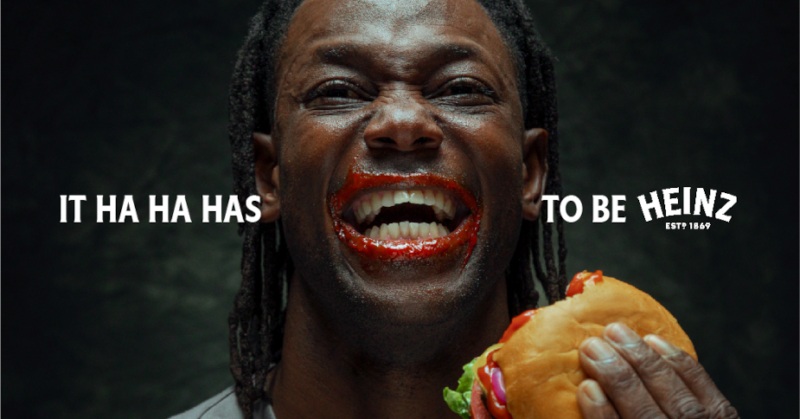Heinz has apologized twice in the last week for advertising campaigns deemed racially insensitive. Both were broadcast in Europe. On Monday (7), the company issued an apology for the “Smiles” campaign, which showed people smiling with ketchup around their mouths. The campaign appeared to reference the new Joker film. However, one of the images featured a black man, and critics stated that it was “strongly reminiscent of blackface and minstrel shows of the 19th and early 20th centuries, where black men – played by white actors – were portrayed with exaggerated, caricatural features. , often including big, red lips,” according to AdAge. Amid a barrage of public criticism, the company responded:
“As a consumer-focused company, we are actively listening and learning, and we sincerely apologize for any offense caused by our recent ‘Smiles’ campaign,” said a spokesperson. “While the intention was to connect to a current moment in pop culture, we recognize that this does not justify the negative impact it may have had. We will do better. We are working to remove the ad immediately.”
The other ad, for the company’s new line of family-sized pasta sauces, features situations that the company says are based on real fan stories about “unconventional” situations inspired by the love of sauces, as Little Black explains. Book. The UK ad in question, for example, shows a newlywed bride eating pasta at her wedding reception, even with the sauce running down her white dress. The problem? The bride is black, and most people seem to believe that the ad shows her surrounded by her (white) groom, his parents and the bride’s mother – but without the bride’s father present, according to The Guardian.
This absence has led many to criticize Heinz for “erasing black fathers,” although others have pointed out that, based on traditional seating arrangements at weddings, it may actually be the groom’s father who is absent. Regardless of what was intended, Heinz issued an apology, telling The Independent:
“We understand how this ad could have unintentionally perpetuated negative stereotypes. We offer our deepest apologies and will continue to listen, learn and improve to prevent this from happening again in the future.”






